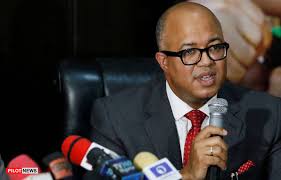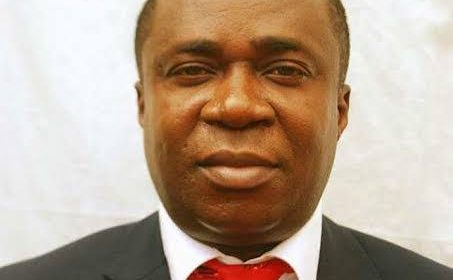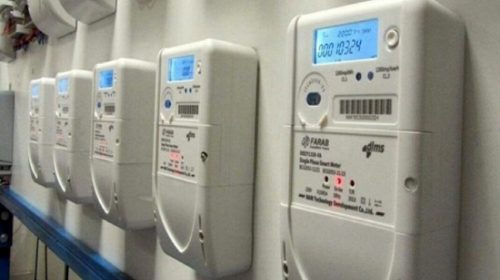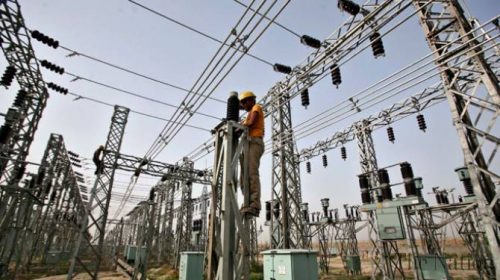Rise in COVID-19 cases: Fears over second wave as states shun safety protocols
.Places of worship, gatherings, others dump use of face masks
.#EndSARS protests may be responsible for recent rise in cases – Virologist

There are fears that Nigeria could soon be hit with the second wave of COVID-19 following rising daily cases and the abandonment of safety protocols by states across the country.
For instance, Nigeria recorded 937 cases last week as against 923 the previous week.
Between Monday, November 2 and Friday, November 6, there was a steady increase in the number of confirmed cases, with 72 recorded on Monday; 137 on Tuesday; 155 on Wednesday; with the figure rising to 180 and 223 on Thursday and Friday, respectively.
The figure, however, dropped to 59 on Saturday, but this was because there were fewer tests conducted on Saturday.
The fear of the second wave of the virus is also reinforced by many state governments that have abandoned the enforcement of safety rules.
Our correspondents in Lagos, Kano, Plateau, Edo, Oyo and Ogun states observed that there were no security agencies enforcing safety protocols, which were being freely violated.
States with the highest confirmed cases as of November 7 are Lagos, with 21,655; Federal Capital Territory, 6,212; Plateau, 3,676; Oyo, 3,515; Rivers, 2,866; and Kaduna, with 2,698.
A resident of Ibadan, Taiwo Olayide, in an interview with The PUNCH on Sunday, said, “Despite the fact that commercial buses are fully loaded with nobody observing social distancing, there are no security agents to enforce compliance.”
Disregard for COVID-19 guidelines may cause a second wave – NAS President
But the President, Nigerian Academy of Science, Prof. Mosto Onuoha, told one of our correspondents that the country risked being hit by a second wave of COVID-19 if the disregard for the Nigeria Centre for Disease Control’s guidelines by the citizens continued.
Onuoha stated, “Nigerians are behaving as if there is no more COVID-19; even in churches now, nobody is using face masks again. If you wear a face mask now, you will look odd.
“I foresee a very serious problem if we don’t become serious again. And the more important and alarming issue is that we’ve opened travels; so, people are coming in from Germany, the United Kingdom and other high-risk countries. Even if it is their own strain of the virus that is problematic, they will bring it here.
“There seems to be weariness in testing; if you go to many of the test centres, you won’t see anybody. You don’t blame the NCDC; I think they are doing their best. We don’t have to behave as if COVID-19 has gone. Truly, God has been merciful to us, the worst never happened but that doesn’t mean that we should let down guard. We should continue to obey the NCDC guidelines.
“We need to be careful; everybody has to be on guard. The National Orientation Agency, the NCDC and state governments have to drum it into people’s ears that in as much as nobody is advocating that the economy should be shut down again, it can come back to that as it is happening around the world.”
#EndSARS protests may be responsible for recent rise in cases – Virologist
Meanwhile, virologist at the University of Ibadan, Prof. David Olaleye, attributed the rise in COVID-19 cases in the last one week to the recent #EndSARS protests.
Olaleye, in an interview with one of our correspondents on Sunday, said the number of positive cases reported by the NCDC was a function of the number of people being tested.
He stated, “The number of cases in the last one to two weeks may partly be as a result of the #EndSARS protests. Large numbers of youths gathered without wearing face masks. It was an opportunity for a super spreading phenomenon. I’m not talking of whether people can protest or not, but the way it was done that time, not minding that we are in the middle of a pandemic, may have contributed to what we are seeing now.
“The number of positive cases is a function of the number tested. If we test more people, we are likely to have a large number of positive cases. It is also a fact that if there is an increase in the number of cases reported, it should be a source of concern. You have to test to identify positive cases; this is when cases will be isolated.”
The virologist also lamented the deliberate disregard for COVID-19 guidelines by Nigerians, adding that it might have contributed to the rising cases in the country.
Olaleye added, “Nigerians have not really been adhering to the public health guidelines; it is unfortunate. When the first case was reported and the cases began to go up, everyone responded well. For some time, the disease has been mild to moderate, compared to some other settings. Nigerians have not been responding very well to the basic guidelines of hygiene of covering the mouth and nose.
“Also, we must note that this is an infection where at least 80 per cent of people infected don’t show overt symptoms. Part of the challenge is that we assumed that the cases are going down, whereas people are not reporting for tests and treatment. The index of suspicion, especially at private hospitals, is low, which has made us believe that the cases are going down. Many private hospitals will not be suspicious until their patient is getting to the advanced stage of illness.”
On the possibility of a second wave of COVID-19 pandemic in Nigeria in view of the citizens’ failure to adhere to safety protocols, Olaleye said, “In the first place, we have not effectively controlled the first wave let alone the second wave. To answer your question, we are risking a more severe situation in a serious way. The longer the virus continues to circulate in a particular society, the greater the risk of adaptation. We will be risking a more severe disease with time.”
Asked if there were fears of another wave of the virus in Oyo State in view of the brazen violation of COVID-19 protocols by residents, the state’s Incident Manager and Coordinator, Emergency Operations Centre, Dr Taiwo Ladipo, said, “At no time did the state let down its guard considering the danger of being lackadaisical.”
On the recent closure of a state higher institution as a result of COVID-19, he said, “It is not about a single case. The fact that we have always been thinking that there could be a resurgence, that is why we have a high index of suspicion about the virus.
“The state is actually thinking about it and putting a lot of things together to ensure that a resurgence is contained.”
We’ll continue with public enlightenment – Lagos
On its part, the Lagos State Commissioner for Information, Mr Gbenga Omotoso, told one of our correspondents on Sunday that the state would continue to engage in public enlightenment to prevent a second wave of the virus.
“Our public enlightenment departments are going out to enlighten people to use face masks, wash their hands regularly and obey other COVID-19 protocols. We are also encouraging people to come for tests,” Omotoso said.
We enforce use of face mask, says Ogun
Also, the Ogun State Government says it will increase advocacy on the need to limit the spread of COVID-19 to avoid a potential second wave of the pandemic.
The government added that it would ensure the enforcement of the use of face masks by residents of the state.
The Special Adviser to the Governor on Public Communications, Remmy Hazzan, stated this on Sunday in an interview with one of our correspondents.
Hazzan said the government believed that the workable antidote to the spread of COVID-19 was the use of face masks.
He stated, “We will continue to advocate the use of face masks; that is the most workable antidote to the spread of COVID-19.
“We will continue with the advocacy we are doing. The virus has not completely gone. We will continue with more advocacy. In most of our offices, if not all, at the entrances, we have signs that no face mask, no entry.”
We are getting confirmed cases every day – Edo
In the same vein, the Edo State Commissioner for Health, Dr Patrick Okundia, said the state was ready to combat the resurgence of COVID-19.
He stated, “In Edo State, we can’t say we are experiencing a second wave of the virus; the response has been on; we have reached the peak and we have started flattening the curve. However, there are sporadic new confirmed cases on a daily basis, but the number is not significant for it to be defined as a second wave.
“Our responses still continue in terms of testing, isolating and treatment of those with confirmed cases, but it is very low. But in terms of preparation for a possible second wave, the state has already made the necessary preparation. Of course, facilities are all still there should we have an increase in the number of cases.
“Our testing facilities are still intact. We have three government testing centres and one private molecular centre, which makes it four and are adequate to prepare for any possible second wave.”
On the arrival of people from abroad to the state, especially in the coming festive period, Okundia said, “The testing centres at the point of entry into the country are still functional.
“Everyone comes into the country with an official test result that confirms that the person is negative. Even those who are travelling out of the country are expected to take COVID-19 test and it is the same for those coming into the country.
“The Federal Ministry of Health and the Ministry of Aviation are saddled with this responsibility and I am sure they are up to the task.”
Kano to intensify surveillance
Also, the Kano State Task Force on COVID-19 says it has intensified surveillance in all the health facilities, especially general hospitals, as part of efforts to check the resurgence of COVID-19 in the state.
The task force Coordinator, Dr Tijjani Husain, stated this in a telephone interview with The PUNCH on Sunday.
He said surveillance would also be carried out at the major healthcare centres in the 44 local government areas of the state and other targeted communities, adding that in the event of reported cases, the committee could swiftly respond.
Husain stated, “Even though there is no resurgence of the COVID-19 pandemic in Kano State, we have taken measures to prevent the resurgence of the deadly pandemic.
“Part of the measures is an increase in surveillance, especially in our general hospitals and other healthcare centres, so that when there are reported cases, we can quickly take samples for immediate testing.”
According to him, the committee will also continue to closely monitor schools and all correctional facilities with a view to checking the resurgence of the COVID-19 pandemic in the state.
‘We’ll reinforce old measures in Plateau’
In the same vein, the Plateau State Government says it will reinforce measures already put in place to stem the tide of COVID-19 spread.
The state Commissioner for Health, Dr Ninkong Lar, stated this in an interview with one of our correspondents in Jos on Sunday.
The commissioner said, “For now, we have not evolved any new measures to stop the spread of COVID-19 in the state except the previous ones that were worked out by the government which are still in place.
“We don’t pray for any resurgence but if it occurs, we will reinforce those measures to ensure that our citizens are safe and protected from the pandemic.”
Punch







Leave a Reply